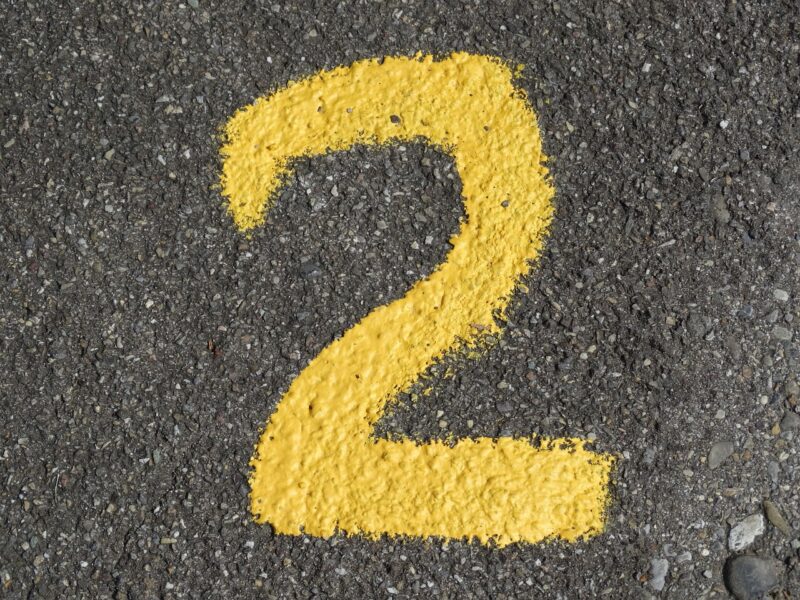
Numbers have been an integral part of human culture and existence since the dawn of civilization. From their use in counting objects to their representation of time, numbers are omnipresent. However, beyond their practical applications, certain numbers have garnered mystical or superstitious significance across various cultures globally. This article delves into the fascinating world of numerology, cultural beliefs, and the psychological aspects that elevate specific numbers to a status of reverence and fear.
1. The Roots of Numerology
Numerology, the study of numbers and their spiritual significance, dates back to ancient civilizations. The earliest known application of numerology can be traced to the ancient Greeks, particularly the philosopher Pythagoras, who believed numbers held a cosmic significance that could unlock the secrets of the universe. According to Pythagorean numerology, each number corresponds to specific personality traits and cosmic energies.
Moreover, cultures such as the Chinese, Indian, and Egyptian civilizations have long associated certain numbers with luck or misfortune, shaping beliefs that persist today. Understanding the roots of these associations provides insight into why particular numbers reverberate in our minds and cultures.
2. Culture and Numbers: A Global Perspective
The significance attributed to various numbers often varies from culture to culture. Here are some examples showcasing how different societies interpret certain numbers:
– The Number 7: Widely regarded as a lucky number in many cultures, the number seven often appears in religious and spiritual contexts. There are seven days in a week, seven colors in a rainbow, and in Christianity, seven represents perfection as seen in the seven days of Creation.
– The Number 13: Generally perceived as unlucky, especially in Western cultures, the fear of the number 13 is so prevalent that many buildings skip the 13th floor. This belief has roots in various mythologies, including the Last Supper, where Judas Iscariot, the betrayer of Jesus, is traditionally believed to be the 13th guest.
– The Number 4: In many East Asian cultures, particularly in China, the number four is considered unfortunate because it sounds similar to the word for “death”. Many buildings and hospitals omit the fourth floor, substituting it with 3A or similar.
– The Number 8: Conversely, the number 8 is viewed as highly auspicious in Chinese culture due to its phonetic similarity to the word for “prosperity” or “wealth.” Many people go to great lengths to incorporate the number into their lives, such as choosing phone numbers, license plates, and even addresses that feature the digit.
Understanding cultural contexts adds depth to our perception of numerology and explains why some individuals become fixated on or fearful of specific numbers.
3. Psychological and Emotional Connections to Numbers
There’s a psychological component that contributes to the mystical significance of certain numbers. The human brain is wired to find patterns and create meaning; numbers are often integral to this process. Here’s how emotions and psychology intertwine with numbers:
– Cognitive Biases: Humans exhibit cognitive biases that lead us to see patterns in randomness. This can manifest in associating specific numbers with events, such as believing that seeing the number 111 repeatedly signifies good luck or impending change.
– Personal Significance: For many, numbers can hold personal significance related to birthdays, anniversaries, or pivotal life events, imbuing them with emotional weight. Such personal connections can elevate a number’s importance beyond cultural or societal beliefs.
– The Power of Suggestion: The use of numbers in rituals, superstitions, and marketing techniques can amplify their importance. For example, people might purchase lottery tickets with their lucky numbers, believing these digits will yield fortune, thus creating a self-fulfilling prophecy.
As much as certain numbers influence culture, personal psychology profoundly shapes individual perspectives toward them.
4. Common Superstitions Related to Numbers
Throughout history, humans have developed various rituals and superstitions surrounding particular numbers. Here are some intriguing examples:
– Knocking on Wood: This popular superstition often involves saying something positive or making a wish, followed by physically knocking on wood to avoid “tempting fate.” The number “three” is commonly associated with this ritual, as many people knock three times, believing it amplifies their luck.
– The Number 666: Considered the “number of the beast” in Christian theology, 666 has become synonymous with evil and bad omen. People often go to great lengths to avoid this number, even skipping purchases if the total comes to $6.66.
– Lucky 8 Ball Practices: Many will use the number 8 as a magical or lucky charm, particularly in using the Magic 8 Ball for decision-making, believing this number brings good fortune.
These superstitions highlight the intersection between rational thinking and cultural influences, showcasing how numbers can shape behavior in everyday life.
5. Conclusion: The Enduring Fascination with Numbers
The enduring belief in the mystical significance of certain numbers speaks to the heart of humanity’s quest for meaning and understanding. Despite the rational explanations behind numerical patterns and belief systems, numbers continue to evoke strong emotions and influence behaviors.
As we navigate our lives, it’s important to recognize the cultural constructs and psychological factors that shape our perceptions of numbers. Whether guiding us through good fortune or leading us to avoid perceived dangers, numbers remain powerful symbols that reflect our deepest beliefs and fears. By appreciating the rich tapestry of cultural interpretations and personal connections to numbers, we better understand humanity’s unique relationship with this abstract yet profoundly significant concept.
If you find yourself drawn to certain numbers, perhaps it’s time to explore their origins and meanings further. The enchanting world of numerology, culture, and psychology awaits, ready to unveil secrets and insights hidden within these seemingly mundane symbols.







